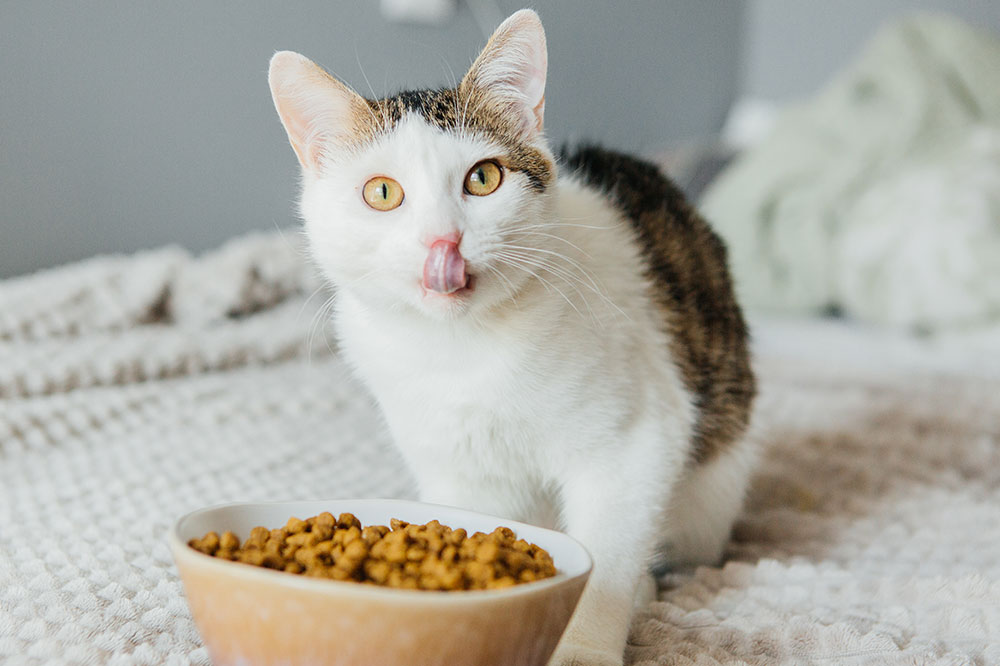Benefits of wet and dry cat foods

If you’re a cat parent, you’d already be aware of their eating habits. Cats prefer a variety of meals in small proportions. No wonder we find them grazing over their bowls time and again. Although, if you’re new to the concept of wet and dry foods for cats, dive right in, for we’ve got something for you.
There are benefits of serving both wet and dry foods to felines. Mainly because, unlike dogs, they’re difficult to please, and one can’t trick them into things they don’t like. If your cat is a fussy eater, they may enjoy wet food better. Find out the benefits of the best dry and wet cat foods.
Benefits of dry cat food
While dry cat food is convenient to store and serve, cats may throw tantrums if served the same food every day. However, dry cat foods help maintain their dental health by preventing the buildup of tartar. Dry foods are also the best way to get the cat to chew its food, exercising its jaws. These foods are ideal when cats are suffering from diarrhea as it helps add bulk to their stool.
Some best dry cat foods that are readily available in every kitchen include:
- Cooked sweet potatoes
- Beef
- Pork
- Lamp
- Dark meat chicken
- Cooked carrots
- Banana
- Green beans/ asparagus/ broccoli (steamed)
- Melon
- Spinach
- Pumpkin
- Peas
Benefits of wet cat food
Wet cat food has a potent aroma and taste, making it ideal for fussy eaters. Cats have a stronger sense of smell than taste, and that’s why they tend to lean more towards foods with a fresh aroma. Additionally, wet food is a great way to keep your feline friend hydrated, especially when they don’t consume adequate fluids in a day. Wet cat food helps induce digestion and prevents constipation. It also helps keep stomach issues at bay.
Some of the best wet cat foods one can easily make at home include:
- Fish in a gravy
- Cooked rice with soup-like texture
- Cooked chicken served with the broth
- Cooked winter squash (soup texture)
- Canned tuna (unsalted)
- Cooked corn with vegetable broth
- Bone broth with meat chunks
While these were some homemade cat foods that can be made in every kitchen, one can also buy wet and dry cat foods from a store. However, remember to steer clear of added salts, preservatives, animal by-products, and artificial colors. Also, if your furry friend is sensitive to allergies, switch to grain-free cat food and make a note of their progress. If you want to include new foods in your pet’s diet, you must consult a vet.








